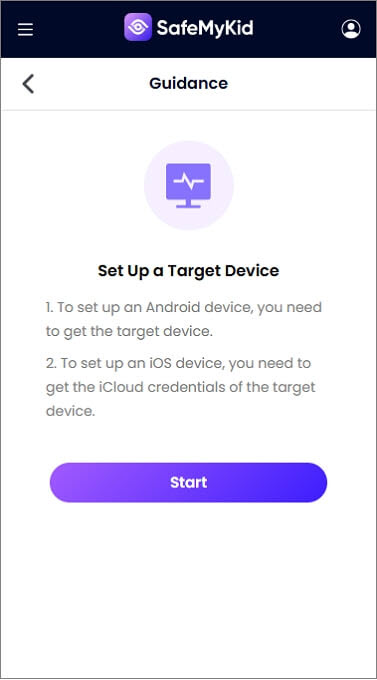How to Treat A Cheating Husband - 4 Methods for Emotional Recovery

If you’ve found yourself searching for answers on how to treat a cheating husband, you are not alone. This difficult journey requires both emotional strength and practical wisdom.

This blog provides you with actionable steps to help you navigate this difficult time and make the best decision for yourself.
Understanding The Emotional Impact of a Cheating Husband
Infidelity can trigger a whirlwind of intense emotions, making it hard to think clearly or know where to turn. It's normal to feel betrayed, angry, sad, or even confused. These feelings are valid and should be acknowledged as part of the healing process.
Infidelity often causes a deep emotional wound that may make you question your self-worth, your relationship, and the future.
While it’s natural to ask, “Why me?” or “What did I do wrong?”, it's important to remember that your husband’s decision to cheat is a reflection of his choices, not your value as a person.
Understanding the emotional impact of infidelity can help you navigate the turmoil with greater clarity.
The feelings of betrayal, shock, and sadness are intense but can be channeled into a stronger sense of self as you make decisions about what you want from the future.
Whether you choose to stay or go, emotional healing is an essential first step in taking back control of your life.
Catch a Cheating Husband Discreetly with SafeMyKid's Phone Tracking Technology

SafeMyKid offers powerful monitoring capabilities, making it an effective tool for uncovering infidelity. With advanced tracking features, SafeMyKid helps you reveal the truth and gather clear, undeniable evidence—giving you peace of mind. Unlike other methods, it delivers discreet and reliable tracking, so you can catch a cheating husband without raising suspicion.
Key Features of SafeMyKid for Catching a Cheating Husband
- Stealth Mode Tracking: Operates in the background without detection.
- Real-Time GPS Location Tracking: Monitor his current and past locations to verify his whereabouts.
- Call and Message Monitoring: View sent and received texts, call logs, and deleted messages.
- Social Media Tracking: Access chats on WhatsApp, Facebook, Instagram, and other platforms.
- Keylogger Functionality: Records every keystroke, including passwords and search queries.
- Web Activity Monitoring: Tracks browsing history, including dating sites and secret accounts.
- Private Media Access: View stored and deleted photos and videos.
How to Set up SafeMyKid to Catch a Cheating Husband
Setting up SafeMyKid is quick and discreet, allowing you to monitor activity without suspicion.
Step 1. Sign up and Create an Account
Register with your email and create a secure password. Follow the on-screen instructions to complete the setup.

Step 2. Set up and Configure SafeMyKid
For iPhones: Log in with his iCloud credentials. No physical access is required.
For Android Devices: Download and install the app on their phone. Once installed, it runs discreetly in stealth mode.

Step 3. Catch a Cheating Husband Online
Log in to your SafeMyKid dashboard from any device. Access call logs, text messages, location history, and social media activity to catch a cheating husband.

How to Treat a Cheating Husband: Effective Approaches

Dealing with a cheating husband is one of the most painful and challenging experiences a person can go through.
The betrayal of trust can leave you feeling lost, confused, and unsure about what to do next
1. Stay Calm and Gather Your Thoughts
Your first instinct may be to react impulsively—confront him immediately, scream, or demand answers.
However, reacting in anger can cloud your judgment and make it harder to think rationally. Instead, take a step back and allow yourself to process your emotions.
- Find a quiet space where you can reflect on what has happened.
- Write down your thoughts and feelings to help clarify your emotions.
- Consider talking to a trusted friend or therapist before confronting him.
- Avoid making immediate decisions out of anger or pain.
Taking the time to gather your thoughts will help you approach the situation with a clear mind and make informed choices about your next steps.
2. Have an Honest Conversation
Once you feel ready, have a direct and calm conversation with your husband. This discussion will help you understand his perspective and decide on the future of your relationship.
- Choose the right time and place – Avoid discussing the matter when emotions are running high. Find a private setting where you can talk openly.
- Ask direct questions – Why did he cheat? Does he regret it? Does he want to stay in the marriage?
- Prepare for different reactions – He may admit to his wrongdoing, deny it, shift the blame, or make excuses.
- Stay composed – Regardless of his reaction, keep your focus on getting clarity rather than letting emotions take over.
This conversation may not provide all the answers, but it is a crucial step in deciding how to move forward.
3. Set Boundaries and Consequences
Whether you decide to stay in the marriage or leave, setting clear boundaries is essential. Boundaries establish expectations and help rebuild trust if reconciliation is an option.
Some important boundaries may include:
- No contact with the other person – This means blocking them on all communication platforms.
- Full transparency – Your husband should be willing to share phone, email, and social media access.
- Attending counseling together – A professional can mediate conversations and help rebuild trust.
- Respecting your healing process – He must acknowledge the pain he has caused and give you time to heal.
If he refuses to respect these boundaries, it may indicate that he is not fully committed to fixing the relationship.
4. Seek Professional Help
A licensed therapist or marriage counselor can provide guidance during this difficult time. Therapy is beneficial whether you decide to work on the marriage or move on.
- Individual therapy – Helps you process emotions, regain confidence, and make informed decisions.
- Couples therapy – Provides a safe space for open communication and addressing underlying issues.
- Support groups – Connecting with others who have experienced infidelity can provide comfort and advice.
Seeking professional help ensures that you have the emotional support and practical tools to navigate your situation.
How to Deal with a Cheating Husband: Moving Forward
Dealing with infidelity is one of the hardest challenges you may face, but you have the strength to overcome it.
1. Prioritize Self-Care and Emotional Healing
Your well-being should be your top priority. Engaging in self-care activities will help you cope with the emotional pain and regain a sense of control.
- Exercise regularly – Physical activity helps relieve stress and boosts your mood.
- Journaling – Writing down your feelings can help you process emotions and track your healing journey.
- Meditation and mindfulness – These practices promote emotional balance and reduce anxiety.
- Take a short trip – A change of environment can provide clarity and relaxation.
- Surround yourself with supportive people – Connect with friends and family who uplift and encourage you.
Focusing on self-care will empower you to make strong and rational decisions about your future.
2. Make a Decision: Stay or Leave?
Not every marriage survives infidelity. Some women choose to rebuild trust, while others decide to walk away. Ask yourself the following questions:
- Do I still love him?
- Can I ever trust him again?
- Is he willing to make real changes?
- Do I see a future with him?
Take the time you need to answer these questions honestly. Your decision should be based on what is best for your emotional and mental well-being.
3. Build a Support System
You don’t have to go through this alone. Confide in trusted friends, family, or support groups who can offer guidance and encouragement. Connecting with others who have experienced infidelity can provide much-needed strength and perspective.
4. Protect Your Financial and Legal Interests
If you decide to leave the marriage, it’s important to safeguard your financial and legal interests.
- Consult a lawyer – Understand your rights regarding property, child custody, and financial support.
- Secure important documents – Gather marriage certificates, financial statements, and legal documents.
- Open a separate bank account – If you don’t already have one, secure your finances for independence.
- Make a financial plan – Ensure you have the resources to support yourself if you choose to leave.
Taking these steps will help you navigate a potential separation with confidence and security.
5. Rebuild or Move on
If you choose to stay, rebuilding trust will take time. Some key steps include:
- Consistent honesty and transparency – Your husband must be open and accountable for his actions.
- Ongoing therapy – Continue attending counseling to work through emotions and trust issues.
- Reestablishing emotional intimacy – Spend quality time together and rebuild your emotional connection.
However, if you decide to leave, embrace the opportunity to create a new, healthier future.
Moving on from a broken marriage can be challenging, but it also opens doors to self-growth, happiness, and new beginnings.
How to Take Control of Your Emotional Recovery after Catching a Cheating Husband
Infidelity can shatter your self-esteem and make you question your worth. However, reclaiming your confidence and independence is essential for healing.
Start by focusing on self-care—exercise regularly, eat well, and engage in activities that bring you joy. Surround yourself with supportive friends and family who uplift you.
Set personal goals that help you regain a sense of control, whether it's advancing in your career, picking up a new hobby, or improving your financial independence.
Therapy or counseling can also provide valuable tools to rebuild your self-worth. If you decide to stay in the relationship, ensure that your boundaries are respected and your needs are prioritized.
If you choose to leave, embrace the opportunity to create a fulfilling life on your terms. Remember, your happiness is not dependent on anyone else.
By focusing on yourself, you can rebuild a stronger, more confident version of yourself.
FAQs about A Cheating Husband
Dealing with a cheating husband comes with many questions and uncertainties. Below are some common concerns and practical answers to help you navigate this challenging situation.
1. How do I confront my cheating husband without losing my temper?
Take time to process your emotions before confronting him. Plan what you want to say, choose a calm setting, and focus on getting clarity rather than reacting in anger.
2. Should I stay with my husband after he cheats?
The decision depends on whether he takes responsibility, is willing to rebuild trust, and whether you feel the relationship can recover. Prioritize your well-being before making a choice.
3. How can I rebuild trust after infidelity?
Rebuilding trust takes time and effort from both partners. Open communication, transparency, counseling, and consistent actions are key to restoring trust.
4. What if my husband continues to lie after being caught?
If he refuses to be honest or take responsibility, it may indicate he is not committed to change. Consider setting firm boundaries or seeking legal advice.
5. How can I heal emotionally after my husband's infidelity?
Focus on self-care, therapy, and surround yourself with supportive people. Engaging in activities that bring joy and setting personal goals can also help her regain confidence.
Conclusion
Understandinghow to treat a cheating husband is essential for making informed decisions about your future.
No matter what you decide, knowing how to deal with a cheating husband empowers you to take control of your happiness.


